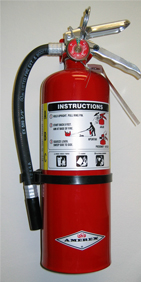2014 Ebola Epidemic
Friday, October 10, 2014
 The 2014 Ebola epidemic is the largest in history, affecting multiple countries in West Africa. There were a small number of cases reported in Nigeria and a single case reported in Senegal; however, these cases are considered to be contained, with no further spread in these countries.
The 2014 Ebola epidemic is the largest in history, affecting multiple countries in West Africa. There were a small number of cases reported in Nigeria and a single case reported in Senegal; however, these cases are considered to be contained, with no further spread in these countries.
On September 30, 2014, CDC confirmed, the first travel-associated case of Ebola to be diagnosed in the United States. CDC and partners are taking precautions to prevent the spread of Ebola within the United States. CDC is working with other U.S. government agencies, the World Health Organization (WHO), and other domestic and international partners and has activated its Emergency Operations Center to help coordinate technical assistance and control activities with partners. CDC has also deployed teams of public health experts to West Africa and will continue to send experts to the affected countries.
Symptoms of Ebola include
Fever (greater than 38.6°C or 101.5°F)
Severe headache
Muscle pain
Weakness
Diarrhea
Vomiting
Abdominal (stomach) pain
Unexplained hemorrhage (bleeding or bruising)
Symptoms may appear anywhere from 2 to 21 days after exposure to Ebola, but the average is 8 to 10 days.
Recovery from Ebola depends on good supportive clinical care and the patient's immune response. People who recover from Ebola infection develop antibodies that last for at least 10 years.
There is no FDA-approved vaccine available for Ebola.
If you travel to or are in an area affected by an Ebola outbreak, make sure to do the following:
Practice careful hygiene. For example, wash your hands with soap and water or an alcohol-based hand sanitizer and avoid contact with blood and body fluids.
Do not handle items that may have come in contact with an infected person's blood or body fluids (such as clothes, bedding, needles, and medical equipment).
Avoid funeral or burial rituals that require handling the body of someone who has died from Ebola.
Avoid contact with bats and nonhuman primates or blood, fluids, and raw meat prepared from these animals.
Avoid hospitals in West Africa where Ebola patients are being treated. The U.S. embassy or consulate is often able to provide advice on facilities.
After you return, monitor your health for 21 days and seek medical care immediately if you develop symptoms of Ebola.
|
|
|
2009 Swine Flu - What You Can Do to Stay Healthy
Thursday, October 22, 2009
 Stay informed. The CDC website (www.cdc.gov/h1n1flu) will be updated regularly as information becomes available.
Stay informed. The CDC website (www.cdc.gov/h1n1flu) will be updated regularly as information becomes available.
Influenza is thought to spread mainly person-to-person through coughing or sneezing by infected people. Take actions to stay healthy:
1) Cover your nose and mouth with a tissue when you cough or sneeze. Throw the tissue in the trash after you use it.
2) Wash your hands often with soap and water, especially after you cough or sneeze. Alcohol-based hand cleaners are also effective.
3) Avoid touching your eyes, nose or mouth. Germs spread that way.
4) Stay home if you get sick. CDC recommends that you stay home from work or school and limit contact with others to keep from infecting them.
5) Follow public health advice about school closures, avoiding crowds, and other social distancing actions.
6) Find healthy ways to deal with stress and anxiety.
For more information, call 1-800-CDC-INFO.
|
|
|
Fire Extinguishers, One for Every Home
Wednesday, June 24, 2009
 Every home should have at least one fire extinguisher - preferably one for each floor. Different extinguishers
Every home should have at least one fire extinguisher - preferably one for each floor. Different extinguishers
put out different types of fires:
A-rated extinguishers are for wood, paper, trash,
and plastic.
B-rated are for gasoline and grease fires.
C-rated are for electrical fires.
For best protection, have a multi-purpose ABC-rated extinguisher on each floor of your home. And don't
wait until you have a fire to learn how to use it.
Know where it is and how it works before you need it.
Remember: A fire extinguisher is no substitute for the
fire department. Always call the fire department first,
no matter how small you believe the fire to be.
|